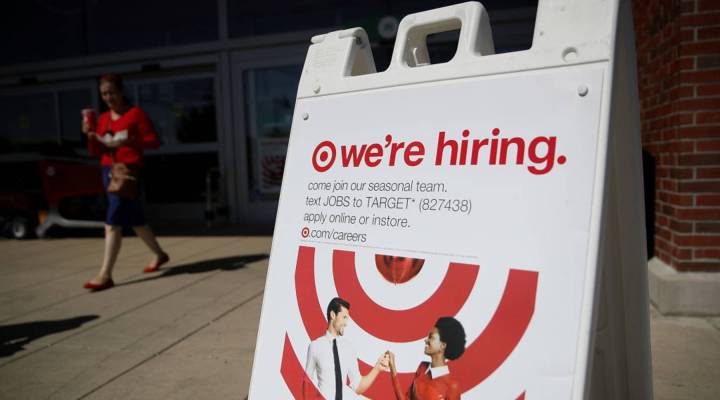
Another sign of the improving economy: a drop in part-time jobs
Share Now on:
Another sign of the improving economy: a drop in part-time jobs

Another 228,000 jobs were added to the U.S. economy last month. The unemployment rate stayed steady at 4.1 percent — a 17-year low. Nearly a decade after the Great Recession, the U.S. economy is almost where it was before the 2008 economic crisis. Almost.
Hourly wages are still low — growing at just 2.5 percent over the last year. And more than 4.8 million people work part-time jobs, despite wanting and being able to work full-time.
“Employers still are holding more of the cards,” said Elise Gould, a senior economist at the Economic Policy Institute. According to her, there are still many workers on the sidelines. Last month, 6.6 million people were counted as unemployed and looking for work. More than 1.6 million people were counted as long-term unemployed — meaning they had been out of work for more than 27 weeks.
That’s not to say that things haven’t been improving. Over the last 12 months, the number of involuntary part-time workers fell by 858,000. A drop in involuntary part-time workers is a positive sign, Gould said.
For many part-time workers, one job is not enough to make ends meet. As a result many end up working multiple part-time jobs. A year ago, almost 2.3 million workers worked two part-time jobs. Another 4.36 million worked one full-time job and one part-time job. Over the past 12 months, the number of people working multiple jobs dropped from 7.8 million to 7.3 million. Last month, fewer than two million people worked two part-time jobs.
“People want to work full time,” pointed out Gould. “When they get offered a full-time job, they’re going to take a full-time job. They may or may not drop the second part-time job.”
One of the reasons why people might prefer a full-time job is because “they’re certainly more likely to get benefits that way,” Gould said.
Thanks to the improving labor market and fewer unemployed people looking for work, workers can be more selective — picking full-time jobs over part-time work. Some employers have already noticed the difference and are offering better pay and hours to attract qualified job candidates. In September of this year, Target announced that starting in October it would pay its workers $11 an hour.
A new survey from the National Federation of Independent Businesses found that 44 percent of small business owners who tried to hire in November said that they couldn’t find qualified workers. About a quarter, 27 percent, of those surveyed also said that they had already raised their wages and 17 percent said they planned to increase wages in the coming months.
At the peak of the Great Recession, in November 2009, the number of those working part-time but wanting full-time work was almost twice as high — coming in at 9.2 million. Considering this, the 4.8 million figure announced last week is a significant improvement, but still has not reached pre-Recession levels. In November of 2006, just 4.18 million people were working part-time for economic reasons like not being able to find full-time work or having their hours cut.
As the recovery continues, Gould predicts the numbers will continue to improve.
“Workers might have a little bit more leverage to get the hours they want to get, to get the wages they want to get, the benefits they want. I think we’re going to be seeing that shift over the next year. I hope so,” she said. “The labor market has certainly been improving. So, this could be early signs of that. Maybe.”
| When a part-time job plus a part-time job still isn’t enough |
| More people need second jobs, fewer can find them |
There’s a lot happening in the world. Through it all, Marketplace is here for you.
You rely on Marketplace to break down the world’s events and tell you how it affects you in a fact-based, approachable way. We rely on your financial support to keep making that possible.
Your donation today powers the independent journalism that you rely on. For just $5/month, you can help sustain Marketplace so we can keep reporting on the things that matter to you.


















